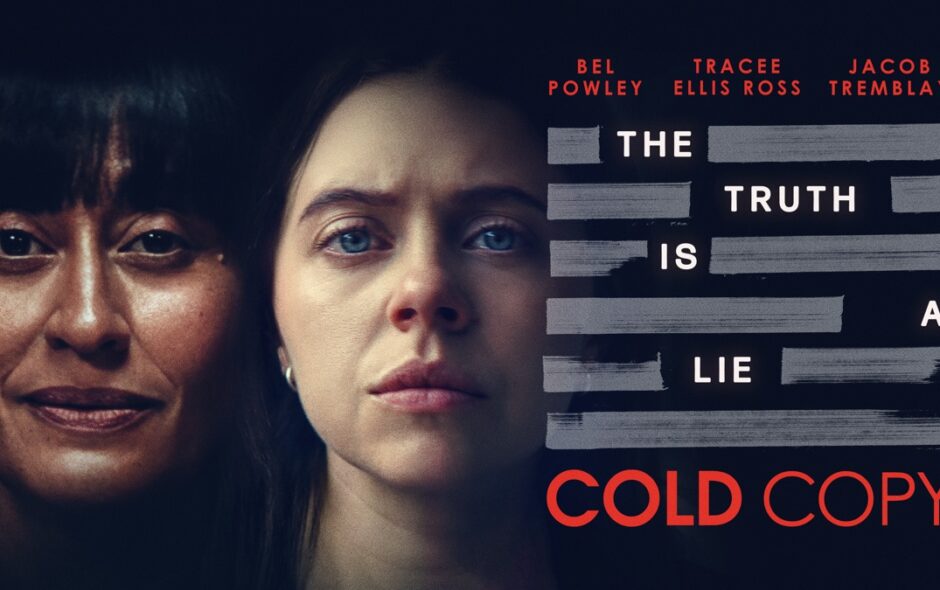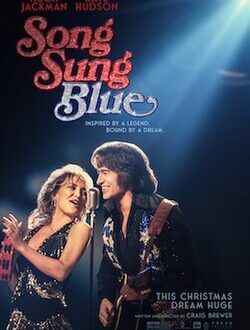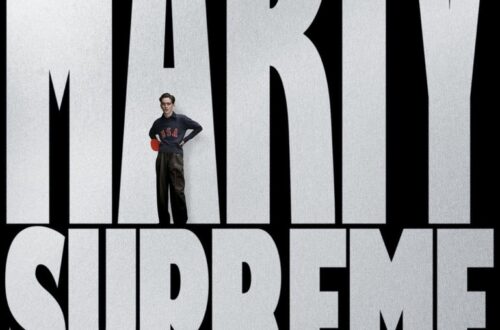Cold Copy is an edgy thriller centered on the morally warped world of modern broadcast journalism, spearheaded by an intense performance from Bel Powley as Mia Scott. She is a journalism student desperate to break into the big leagues under the mentorship—some might say manipulation—of celebrated but merciless reporter Diane Heger, played with composed menace by Tracee Ellis Ross.
From the opening scene, the film establishes itself as a psychological duel. Mia, timid and hungry for success, seeks Heger’s approval through any means—ethics be damned. The dynamic quickly becomes a power game. Tracee Ellis Ross brings cold confidence and razor-sharp delivery to Heger, crafting a character whose veneer of elegance barely conceals a predator’s instinct. In contrast, Powley’s portrayal of Mia is layered with vulnerability and flickers of ruthless ambition. Her transformation is unsettling precisely because you can feel the erosion of her ideals so clearly.
The crux of the narrative hinges on Mia stumbling upon Igor Nowak, a fragile, emotionally scarred teenager played with touching subtlety by Jacob Tremblay. Mia sees in Igor a sensational story that could earn her coveted airtime—but the truth soon becomes a distortable commodity. As Mia manipulates Igor’s tragic background for impact, Cold Copy forces uncomfortable questions: what’s the cost of a compelling narrative? At what point does ambition become betrayal?
Roxine Helberg’s directorial debut leans into this ethical murk with an unflinching lens. The visual palette, courtesy of cinematographer Matteo Cocco, is stark and unforgiving—think cold blues and muted tones, shadows that accentuate the unease of newsrooms and quiet interiors alike. Close-ups linger just long enough to register flickers of doubt in a character’s eye or a sweat bead. The film pulses with tension even when characters are sitting still. There’s a palpable sense of every scene teetering on the edge of chaos.
What elevates Cold Copy—despite its narrative familiarities—is the caliber of its central performances. Powley and Ross feed off each other, delivering dialogue thick with power plays and half-truths. The exchanges crackle with subtext—one-liners that carry both charm and cruelty. Tremblay, as Igor, provides a much-needed emotional anchor. The moments where Igor’s guarded grief surfaces feel raw and earned, giving the film surprising weight. It would collapse without him.
Still, Cold Copy doesn’t fully transcend its genre’s pitfalls. Critics have noted that it recycles tropes—star-struck apprentice, ruthless mentor, tragedy for ratings—that evoke earlier media satires. Some plot turns feel too convenient, reaching predictably toward moral consequences without deeply interrogating them. The story arcs toward a resolution that, while thematically consistent, lacks the emotional crescendo such moral descent promises.
Yet for all its uneven scripting, Cold Copy remains compelling. It glides on the strength of its actors and its timely interrogation of truth as currency in today’s news cycles. In a world where clicks and sensationalism often shadow substance, the film serves as a sharp, uncomfortable mirror—and a cautionary tale about how easily the right story can warp the storytellers.
Clocking in at a taut 91 minutes, Cold Copy doesn’t overstay its welcome. It’s a polished and provocative debut by Roxine Helberg, who navigates ambition, ethics, and performative journalism with measured craft. Viewers drawn to psychological thrillers anchored by character tension and systemic critique may find themselves chilled—and maybe paranoid—about who’s shaping the stories they believe.
Cold Copy is available now on Netflix with subscription and on Amazon for 2.99.




